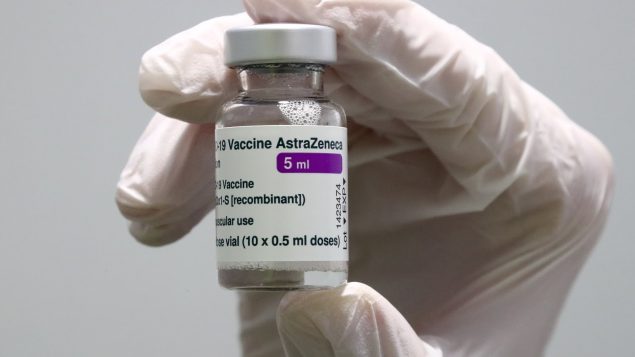Health Canada announced Wednesday it had updated the label for the AstraZeneca-Oxford and Covishield COVID-19 vaccines in order to provide information on the “very rare” reports of blood clots that are associated with low levels of blood platelets following immunization with the vaccine.
They have also informed health care professionals and vaccine recipients of the potential signs and symptoms of blood clots and low platelet counts such as shortness of breath, chest pain, and persistent abdominal pain following vaccination, as well as any neurological symptoms such as severe headaches and blurred vision.
“Health Canada reassures Canadians that the AstraZeneca COVID-19 vaccine continues to be safe and effective at protecting them against COVID-19 and encourages people to get immunized with any of the COVID-19 vaccines that are authorized in Canada,” the health agency said in a statement.
In a news conference on Thursday, Health Canada’s chief medical adviser, Dr. Supriya Sharma, said that in Canada, the provinces have already administered over 300,000 doses of the Covishield version of the AstraZeneca vaccine and there have been no domestic reports of these rare events.
Last week, several European countries suspended use of the AstraZeneca COVID-19 vaccine due to concerns regarding blood clots affecting some recipients of the vaccine.
The European Medicines Agency (EMA) said in a report last week that the vaccine is not associated with an increase in blood clots in those who receive it and that there is no evidence of problems related to specific batches of the vaccine or to particular manufacturing sites.
However, the EMA added that the vaccine may be associated with very rare cases of blood clots associated with low levels of blood platelets, including rare cases of clots draining blood from the brain.
The EMA said that these are rare cases and out of the 20 million people who received the vaccine, seven cases of blood clots in multiple blood vessels and 18 cases of cerebral venous sinus thrombosis were reported.
“A causal link with the vaccine is not proven, but is possible and deserves further analysis,” the EMA said.

Dr. Supriya Sharma, chief medical adviser at Health Canada, reassured Canadians that at this time, the benefits of the vaccine continue to clearly outweigh any potential risks. (THE CANADIAN PRESS/Sean Kilpatrick)
Health Canada officials said that they are aware that researchers in Europe have indicated that they have found a possible cause for these rare events seen with the AstraZeneca COVID-19 vaccine, but that little information is available at the moment. Health Canada officials added that they will be reviewing this information when it is available.
“While it may take some time to get all the answers, Canadians can feel certain that we will not hesitate to take any action if any new safety issues are confirmed,” Sharma said. “But I want to reassure Canadians that at this time, the benefits of the vaccine continue to clearly outweigh its potential risks.”
Canada’s health agency said that minor and temporary effects including headaches, fever, fatigue or pain at the injection site are common, but that people should seek medical attention if they have any new or worsening symptoms.
With files from CBC News







For reasons beyond our control, and for an undetermined period of time, our comment section is now closed. However, our social networks remain open to your contributions.